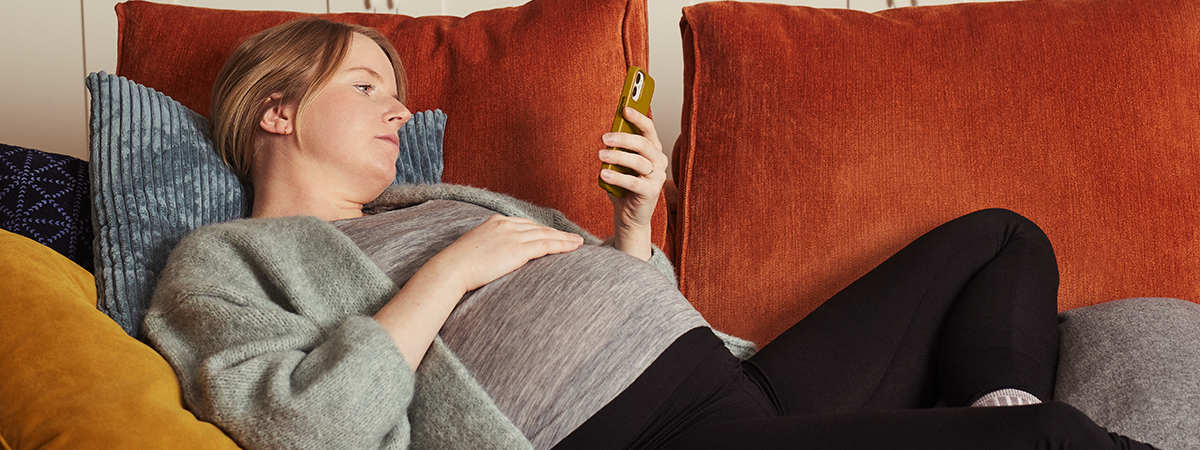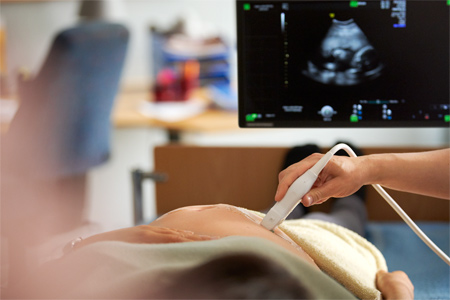Vitamins, minerals and folic acid

Vitamin D, folic acid, iron and calcium – the list of vitamins and minerals your body needs is lengthy, especially when you’re forming a new baby. A varied diet will take you a long way, but some substances can still be difficult to get in the right quantity. Find out what you need to know here.
Whether you’re pregnant or not, most nutrients are best absorbed through food. If you are pregnant, some foods are especially beneficial – foods containing the nutrients you need a little more of during pregnancy. But even if you eat properly, you might still need some dietary supplements or multivitamins as a complement to your diet during pregnancy. At the very least, you’ll need folic acid – even before you get pregnant.
Folic acid
Preferably, you should be getting extra folic acid – or vitamin B9, as it’s also called – for at least a month before you become pregnant. Once you are pregnant, you should take 400 micrograms per day up until week 12 – which is basically the entire first trimester. This reduces the risk of spina bifida in the foetus. Folic acid is important for the rest of pregnancy as well, because it helps the foetus develop and it helps the mother form blood. While folic acid is in various foods, it can be difficult to eat enough of them to get the recommended amount – especially before and during those first 12 weeks. That’s why the recommendation is to take a supplement.
Folic acid is in:
- vegetables like spinach, broccoli, green cabbage
- beans, chickpeas, lentils
- fruit and berries
- whole-grain products
- folic acid tablets
Calcium
Calcium is a necessary mineral for building the baby’s bones and teeth. So when you’re pregnant, you need plenty of calcium: around 900 mg per day. Dairy products are rich in calcium and the recommended amount during pregnancy corresponds with about half a litre of milk and a portion of yoghurt or a few slices of cheese. If you just want to drink milk, you need about 0.75 litres. If you don’t drink milk, then legumes, especially soybeans, are a good source. Vegan milks are also often enriched.
Calcium is in:
- milk, yoghurt, cheese
- broccoli, green cabbage
- sardines
- radishes
- eggs
- beans and legumes
- nuts and sesame seeds
Vitamin D
Calcium and vitamin D go together like bees and flowers. You need vitamin D to be able to absorb the calcium in your food and to make sure it nourishes your baby. You can get some vitamin D through food, but your body also makes its own when you’re out in the sun. For the most part, you don’t need to take vitamin D in summer, but in winter, it may be necessary. In addition, the darker your skin, the harder it is to produce vitamin D. And if a lot of your skin is covered, you may need a supplement, even if the sun is shining. The recommendation is 20 micrograms per day if you know you won’t be getting enough vitamin D through sunshine and food. If you’re not sure, then ask your doctor or midwife for guidance.
Vitamin D is in:
- milk, yoghurt
- fish and eggs
- sunshine
- vitamin D tablets
Be careful with vitamin A
Vitamin A is important when the embryo is developing and is needed for normal development of your baby’s vision, among other things. But too much in early pregnancy could increase the risk of damage to the foetus. This is why you should be a little careful, and to avoid the risk of overdosing, pregnant people should not eat liver or kidney. Liver pâté is okay, however, because it is not particularly high in vitamin A. Carrots are also rich in vitamin A in the form of beta-carotene – and you can’t get too much from too many carrots – so keep on crunching. If you take a multivitamin, check that it has no more than 1 milligram of vitamin A per day.
Iron
Many pregnant people become iron deficient, especially from week 20, when blood volume has increased by nearly 50% and the baby’s iron need becomes more tangible. A good strategy is to eat a varied diet and add a source of vitamin C to your meal, since vitamin C helps the body absorb iron. But you won’t always be able to get the required amount and an iron supplement in tablet form is usually necessary. Your doctor or midwife will monitor your iron levels and Hb values, but it’s good to be proactive and think about what and how you eat.
Iron is in:
- meat, blood pudding and iron-enriched foods
- poultry, fish and eggs
- legumes like peas, beans and lentils
- nuts and seeds
- whole-grain products
- spinach and other leafy greens
- iron tablets
Multivitamins and dietary supplements
If you opt for a multivitamin specifically made for pregnant people, then you will get the recommended dose of most vitamins and minerals. They will have the proper amounts of folic acid and vitamin D, which you will want to track a little more carefully, and you won’t have to take multiple tablets, which would increase the risk of getting too much of something. It’s good to tell your doctor or midwife what kind of dietary supplements you take, and when you’re pregnant, it isn’t necessary to start taking something new unless a doctor or midwife recommends it.
Please note that all information above is based on Swedish recommendations.

